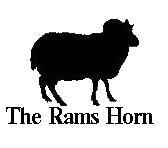
HOME | home
Donkeys | Donkey Lore | Donkeys at Thistledown | John, the Farrier Comes | Morgan Horses | Horse Health | Horse Thieves | Driving Horses
Horse Health
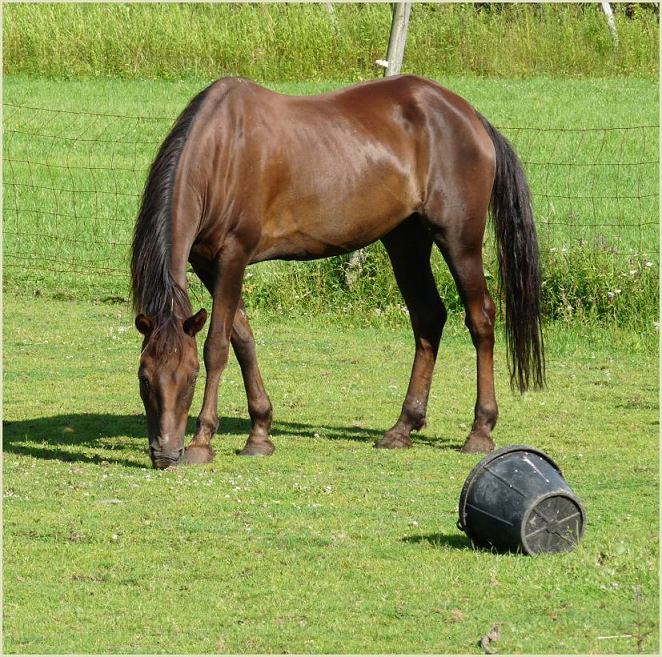
This is a useful article from the University of Maryland College of Agriculture and Natural Resources. It seems particularly appropriate for Western, NY.
Winter presents a challenge to horse owners when it comes to feeding their horses. Low temperatures, harsh winds and rain, snow, and ice all contribute to the increasing nutrient requirements a horse has to keep themselves warm and maintain their body weight.
Here are a few feeding tips to help horse owners keep their horses happy and healthy this winter:
Winter tends to be a time when horses lose weight, and a heavy winter coat can hide a thin horse. Make sure to check your horse’s body condition every 30 days. If your horse loses weight during the winter, try increasing his body weight prior to the winter months so that he can lose some weight during the winter without becoming thin.
Horses require additional energy from the diet to maintain body weight when temperatures drop below 45°F. Remember that pasture grasses do not grow during the colder months. Providing good quality hay at 2% of the horse’s body weight should meet his nutrient requirements for maintenance. Feeding hay also generates heat during digestion by gut microbes, and that helps horses stay warm.
If hay availability is limited, beet pulp can also be a beneficial source of fiber. Also, investigate “complete feeds” that have the fiber already in the bag.
Use hay feeders during the winter. Up to 20% of hay is wasted by horses when fed on the ground.
Horses in work or pregnant mares might require grain along with hay to maintain body weight. Avoid feeding more than 4-5 lbs of grain in one meal feeding in order to reduce the horse’s risk of colic.
Consider adding fat to the diet in the form of oil or bran in order to increase the amount of energy in the diet. Fat packs more energy in each pound than carbohydrates.
Improve how your horse utilizes the feed you give him during winter by having their teeth checked and floated if necessary and by deworming the horse prior to the winter months.
Horses might decrease their consumption of cold or freezing water during the winter leading to an increased risk of colic. Make sure your horse is consuming at least 10 gallons of fresh clean water each day. Use tub and/or bucket heaters to help reduce ice formation and to keep the water lukewarm. Check all water sources and remove ice daily.
Provide salt blocks in fields and stalls. Although salt intake is more important during the hot summer months to replace sodium and chloride lost in sweat, horses do not meet their daily salt requirements by consuming forage alone.
Keep in mind that older horses have additional needs during the winter. Feeding a diet based on beet pulp prior to and during winter can help them maintain their weight during the winter.
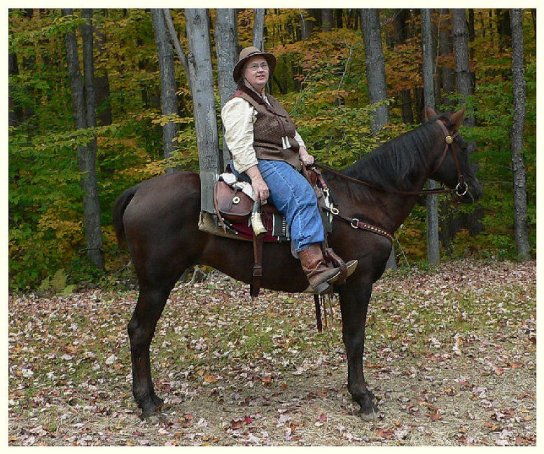
and other authentic Buckaroo gear!
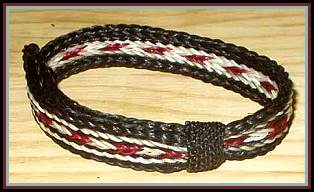

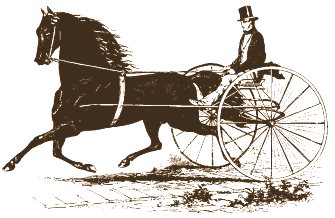
copyright 2006 , Jim & Beth Boyle, All Rights Reserved
No part of this website may be used for any purpose ( including using images )
without written consent from The Rams Horn

